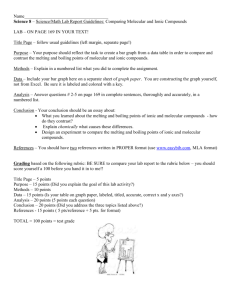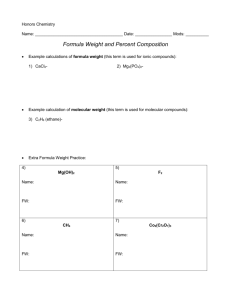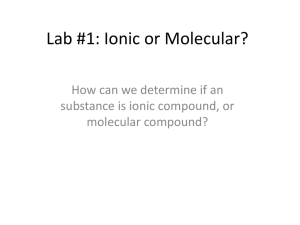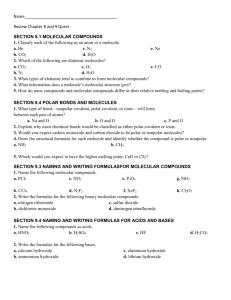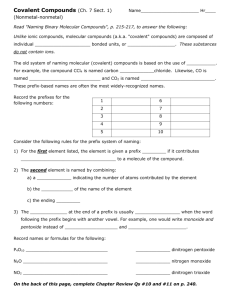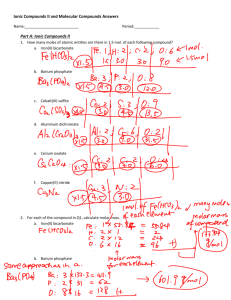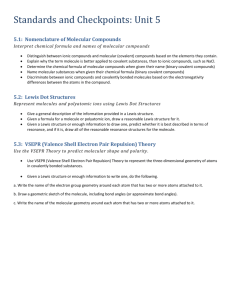Properties of Molecular Compounds
advertisement
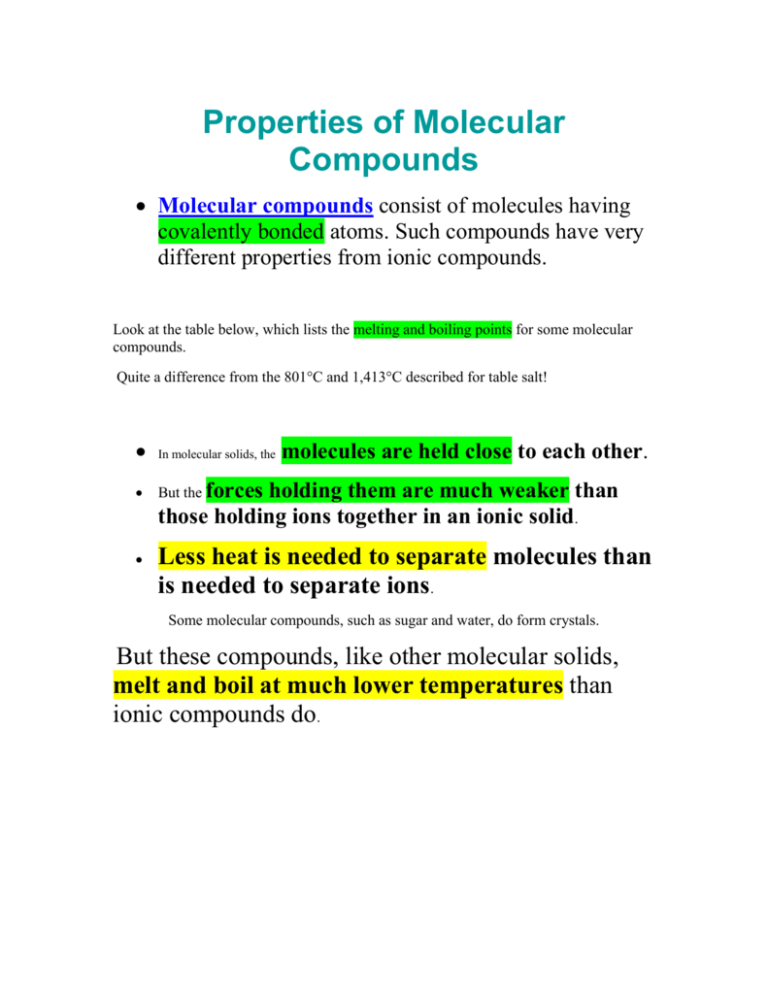
Properties of Molecular Compounds Molecular compounds consist of molecules having covalently bonded atoms. Such compounds have very different properties from ionic compounds. Look at the table below, which lists the melting and boiling points for some molecular compounds. Quite a difference from the 801°C and 1,413°C described for table salt! In molecular solids, the But the forces Less heat is needed to separate molecules than is needed to separate ions. molecules are held close to each other. holding them are much weaker than those holding ions together in an ionic solid. Some molecular compounds, such as sugar and water, do form crystals. But these compounds, like other molecular solids, melt and boil at much lower temperatures than ionic compounds do. Melting and Boiling Points of Some Molecular Compounds Molecular compounds have much lower melting points than ionic compounds. Most molecular compounds are poor conductors of electricity. No charged particles are available to move, and electricity does not flow. That's why molecular compounds, such as plastic and rubber, are used to insulate electric wires. Even as liquids, molecular compounds are poor conductors. Pure water, for example, does not conduct electricity. Neither does water with sugar dissolved in it. Do checkpoint now
